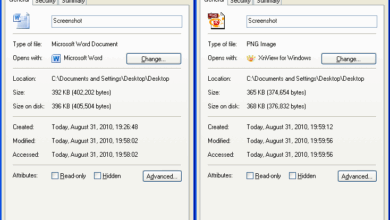What hidden fees should I be aware of when booking hotels?
What hidden fees should I be aware of when booking hotels? This question often lurks in the minds of travelers eager to secure the best deal for their accommodation. While the initial price may seem attractive, the reality is that additional charges can significantly inflate your total expenses. From resort fees that add to the allure of a luxurious stay, to unexpected parking fees that can surprise even the savviest of guests, unraveling the complexities of hotel pricing is crucial for a savvy traveler.
This article delves into the common hidden fees associated with hotel bookings, offering insights on how to spot them before they impact your wallet. By understanding the implications of location, seasonal trends, and your rights as a customer, you can navigate the world of hotel fees more effectively and make informed decisions about your accommodations.
Common Hidden Fees in Hotel Bookings: What Hidden Fees Should I Be Aware Of When Booking Hotels?
When planning a stay at a hotel, it’s essential to be aware of potential hidden fees that can significantly inflate your total costs. Many travelers often overlook these additional charges, which can turn a seemingly affordable booking into a more expensive endeavor. Understanding these common hidden fees can help you budget more effectively and enhance your overall experience.
Traveling with pets can be challenging, but many hotels now cater to furry companions. Finding a pet-friendly accommodation not only makes the journey easier but also ensures that your pets enjoy the trip as much as you do. To discover which hotels are welcoming to pets, visit Which hotels are pet-friendly for guests traveling with pets?.
Typical Hidden Fees Associated with Hotel Bookings
Numerous fees may be added to your bill during a hotel stay, and being informed about them can help avoid unpleasant surprises at checkout. Some of the most common types of hidden fees include:
- Resort Fees: Many hotels, especially in tourist destinations, charge a mandatory resort fee that covers amenities such as pool access, gym usage, and Wi-Fi. This fee is typically non-negotiable and can range from $10 to $50 per night.
- Parking Fees: If you’re driving to your hotel, check for parking fees, which can add significant costs to your stay. Valet parking can be particularly expensive, sometimes exceeding $50 per night, while self-parking may still incur daily charges.
- Early Check-in and Late Check-out Fees: If you require more flexibility with your arrival or departure times, be prepared for additional charges. Hotels often impose fees for early check-in or late check-out, typically ranging from $25 to $75.
- Mini-Bar Charges: Mini-bars can be convenient but costly. Snacks and beverages are often marked up significantly, with charges that can be three to four times higher than retail prices.
- Internet Access Fees: While many hotels now offer complimentary Wi-Fi, some still impose daily fees for internet access, potentially charging up to $20 per day.
Impact of Resort Fees on Overall Costs
Resort fees can substantially affect the overall price of your hotel stay. These charges, often added at the end of the booking process, can be misleading if not stated upfront. For example, a hotel listing a room for $100 per night might add a $30 resort fee, bringing the total to $130 per night without clear communication. This practice can lead travelers to feel deceived, as the final price does not reflect the initial advertisement.
When choosing a luxury hotel, it’s essential to consider the amenities offered. A true five-star experience should include features like a world-class spa, fine dining options, and concierge services. For more insights into the essentials that elevate a stay, check out What amenities should every luxury hotel include?.
It is crucial to read the fine print and confirm the total cost before finalizing the booking.
Implications of Parking Fees at Hotels
Parking fees can be a significant hidden cost, especially in urban areas or popular tourist destinations where parking space is at a premium. Depending on the hotel’s location and amenities, the cost of parking can vary widely, with some establishments charging upwards of $60 per night for valet service. Additionally, guests should consider the convenience of nearby public parking options, which may provide more affordable rates.
Being aware of parking fees allows travelers to factor this expense into their budget, ensuring a smoother and more cost-effective stay.
Strategies to Avoid Hidden Fees
When planning a hotel stay, it’s crucial to be informed about potential hidden fees that can significantly increase the overall cost of your booking. By employing effective strategies, you can uncover these extra charges and ensure that your budget remains intact. Here are some essential tips for navigating the often murky waters of hotel fees.
Uncovering Hidden Fees Before Booking
Before finalizing a hotel reservation, it’s vital to take proactive steps to identify any hidden fees that may apply. Here are strategies to help you in this process:
- Research online reviews: Websites like TripAdvisor or Yelp often reveal firsthand experiences from previous guests, including any unexpected fees they encountered during their stay.
- Visit the hotel’s official website: Many hotels disclose their fees in a dedicated section, allowing you to access the most accurate and up-to-date information.
- Call the hotel directly: Speaking with a front desk representative can provide clarity on any additional charges that might not be listed online.
Comparing Total Costs Across Various Platforms
Comparing prices across different booking platforms is a critical step in identifying the total cost of your stay. The price displayed on one site may not include certain fees that another site does. Consider the following methods for effective comparison:
- Use price comparison websites: Tools like Kayak or Trivago aggregate prices from multiple sources, helping you to identify total costs including taxes and fees.
- Check direct booking discounts: Some hotels offer the best rates when booking directly, sometimes waiving certain fees as an incentive.
- Utilize reward programs: If you belong to a hotel loyalty program, you may receive benefits or discounts that can offset hidden fees.
Importance of Reading the Fine Print
The terms and conditions of a hotel booking often contain hidden gems of information regarding additional fees. Understanding these details is crucial for a transparent booking experience. Here are important aspects to focus on:
- Cancellation policies: Many hotels impose fees for changes or cancellations, which can vary significantly among properties. Knowing these can save you from unexpected charges.
- Resort fees: Some hotels charge daily resort fees that cover amenities like Wi-Fi, gym access, or pool usage. Make sure to factor these into your budget.
- Additional guest charges: If you’re traveling with more than two guests, check whether the hotel charges extra for additional occupants.
“Reading the fine print can often reveal hidden fees that can impact your budget, so don’t skip this crucial step.”
Impact of Location on Fees
The geographic location of a hotel plays a critical role in determining the fees associated with a booking. Understanding how these fees fluctuate based on urban versus rural settings, as well as seasonal trends, can help travelers navigate the often complex landscape of hotel pricing. Urban hotels generally impose higher fees compared to their rural counterparts. This difference is largely influenced by demand, local attractions, and the overall cost of living in metropolitan areas.
For instance, hotels in cities like New York or San Francisco often have additional charges such as resort fees, parking fees, and higher taxes, which can significantly increase the total cost of a stay. In contrast, hotels located in less populated areas tend to offer fewer hidden fees, making them a more budget-friendly option for travelers.
Urban versus Rural Settings
The distinction between urban and rural hotel pricing structures is stark and reflects various economic factors. Urban hotels, often located in high-demand areas, implement fees that can include:
- Resort Fees: Commonly seen in urban hotels, these can range from $20 to $50 per night, covering amenities like Wi-Fi, gym access, and pool usage.
- Parking Fees: In cities, parking can be limited and expensive, with fees ranging from $30 to $70 per night; some hotels even charge for valet services.
- City Taxes: Urban hotels can impose higher local taxes, sometimes reaching up to 15% or more, which can impact the overall price of your stay.
Rural hotels generally have lower overhead costs and face less competition, allowing them to maintain more straightforward pricing structures. This simplicity often translates to lower overall expenses, making rural accommodations more appealing for budget-conscious travelers.
Seasonal Trends and Fee Visibility, What hidden fees should I be aware of when booking hotels?
Seasonality significantly influences hotel fees and can affect the visibility of hidden charges. During peak travel seasons—such as holidays, summer vacations, or major local events—hotels may introduce additional fees that are not present during off-peak times. For example, during the summer in beach destinations, hotels may charge higher rates along with additional fees for beach access or recreational activities. Conversely, in the off-peak season, many hotels may offer discounts or waive certain fees to attract guests.
It is crucial for travelers to be aware of these seasonal variations as they can lead to unexpected costs. Analyzing historical data or using booking platforms that highlight fee trends can aid in anticipating these changes.
“Understanding the impact of location and seasonal trends can provide travelers with the necessary insights to make informed booking decisions, ultimately minimizing hidden fees.”
Customer Rights and Hotel Fees

When booking a hotel, many guests may be unaware of their rights regarding undisclosed fees. Understanding these rights is crucial in navigating the often murky waters of hotel pricing, which can include various unexpected charges. Being informed empowers consumers to make better decisions and helps them hold hotels accountable for unfair practices.
Customers have specific rights when it comes to transparency in hotel bookings. The Fair Credit Reporting Act and other consumer protection laws stipulate that all fees should be clearly disclosed before a transaction is finalized. If a hotel adds fees after a booking or does not provide adequate information about them upfront, customers can pursue several avenues to address the issue.
Filing Complaints Regarding Unfair Fees
If you encounter undisclosed fees, it is essential to know how to escalate your complaint effectively. The following steps Artikel a structured approach to addressing unfair hotel fees:
1. Document Everything
Keep records of your booking confirmation, receipts, and any communications with hotel staff. This documentation can help support your case.
2. Contact Hotel Management
Initially, reach out to the hotel management to discuss the fees. Be clear and concise about your experience and why you believe they are unfair.
3. File a Complaint with Consumer Protection Agencies
If the hotel does not resolve the issue, you may file a complaint with consumer protection agencies. This includes local or state consumer affairs offices or organizations like the Better Business Bureau (BBB).
4. Utilize Online Review Platforms
Share your experience on review sites. A detailed and honest review can alert other potential guests and pressure hotels to address their practices.
5. Consider Legal Action
As a last resort, if the fees are substantial and the issue remains unresolved, consulting with a legal professional about potential action may be necessary.
“Knowledge is power; understanding your rights can save you money.”
Role of Consumer Protection Agencies in Hotel Fee Disputes
Consumer protection agencies play a vital role in addressing disputes over hotel fees. They provide resources, guidance, and sometimes mediation services to assist consumers. Their involvement can highlight unfair practices and pressure hotels into more transparent pricing strategies. Here’s how these agencies contribute:
Investigations
Agencies often conduct investigations into complaints about unfair fees, revealing patterns of unethical behavior among hotel chains.
Awareness Campaigns
They may run campaigns to inform consumers about their rights and the importance of reading the fine print in bookings.
Legal Action
In cases of widespread unfair practices, these agencies can take legal action against hotels, potentially resulting in fines or new regulations.
Mediation Services
Many agencies offer mediation services, facilitating a resolution between consumers and businesses without the need for more formal legal action.
Understanding customer rights regarding hotel fees can significantly impact your travel experience. By being aware of the steps to take when confronted with hidden charges and the role of consumer protection agencies, you can navigate the hotel booking process with confidence. This knowledge not only aids in resolving disputes but also promotes fair practices within the hospitality industry.









